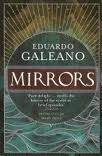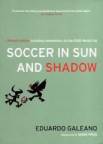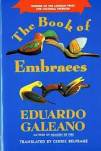Genre : Fiction, history, journalism
Nationality : Uruguayan
Tweet-ing at : EduardoGaleano
About him
When Venezuelan president Hugo Chavez gifted Open Veins of Latin America to his American counterpart Barack Obama in 2009 it became an act of great political significance. Open Veins is a chronicling of centuries of exploitation of the Latin American land and people by various imperialist and capitalist enterprises from all over the world, the United States being a leader in that field in the recent past. This was also the entry of Eduardo Galeano into the reading lists of a vast majority of the English-speaking world. This is not to undermine Galeano’s fame among Spanish speakers but only a testament to that quality of his writing which speaks to anyone who reads it.
He was born Eduardo Hughes Galeano in Montevideo, Uruguay, where he started his career as a political cartoonist. He went on to become the editor of two highly politically driven papers until his name was added to the hunting lists of the various dictatorial military rules in the continent. He was forced to flee, first his country and then Argentina, in order to seek refuge elsewhere. Open Veins of Latin America was banned in many Latin American nations, presumably for its subversive potential.
Galeano’s writing, from Open Veins to Mirrors, concentrates on everything that has been pushed away from and by the center to the margins. It cannot be pinned down to any category or genre. He writes to tell as many stories in the least tied down manner possible. He writes of the downtrodden and the subjugated, but not out of pity or to arouse sympathy. The anger he feels towards the perpetrators of violence against his people as well as others like them around the world, seethes under the surface of his poetic writing. Every word on every page comes from a place of deep feeling. He manages to convey the atrocities not just as stories but as a viscerally felt torment.
Journalist, poet, novelist, radical thinker- Galeano wears many hats and with much aplomb. His writing is thought provoking as it is delightful. Since Gabriel García Márquez’s One Hundred Years of Solitude brought Latin American writing to the libraries of the rest of the world, writers from the region have produced inventive and extraordinary ways of writing. Galeano follows in that tradition by staying away from anything that might be deemed conventional or run-of-the-mill. He is a great story-teller, bar none, and his words roll off the page effortlessly. Credit must go to the translators of his works as well for keeping intact the very essence of his works while managing to translate not just the words but the style of his writing as well.
Galeano delicately mixes lore and poetry with anger and the result is writing of the most sublime variety. It is an experience that makes him one of those criminally lesser known writers reading one of whose works feels like discovering a diamond in the sand.
Famous works
Mirrors: Stories of Almost Everyone(2009)
 A radical retelling of the history of the world from the point of view of the weak and marginalised while lambasting institutions of power which have brutally kept a vast majority of the world’s population chained and without dignity.
A radical retelling of the history of the world from the point of view of the weak and marginalised while lambasting institutions of power which have brutally kept a vast majority of the world’s population chained and without dignity.
Soccer in Sun and Shadow (1995)
 A look at the history of the game the author loved since he was a boy as well as a take on the modern issues plaguing football.
A look at the history of the game the author loved since he was a boy as well as a take on the modern issues plaguing football.
The Book of Embraces (1989)
 A collection of events from the author’s life where the intimacy of the content is married to his political vision.
A collection of events from the author’s life where the intimacy of the content is married to his political vision.
Days and Nights of Love and War (1978)
 A journal style testimony of the author that explores the struggles of people in Latin American countries even as it recounts the torments of his life as in exile away from his beloved country and people.
A journal style testimony of the author that explores the struggles of people in Latin American countries even as it recounts the torments of his life as in exile away from his beloved country and people.
Open Veins of Latin America
 Five Centuries of the Pillage of a Continent (1971)- A conventional telling of the history of Latin America, though from the point of view of the “third world” nations that were exploited by the rich and powerful nations of the world. A historical, social and economic analysis of centuries of exploitation that brought a naturally blessed continent to its knees and pushed its people into the jaws of poverty.
Five Centuries of the Pillage of a Continent (1971)- A conventional telling of the history of Latin America, though from the point of view of the “third world” nations that were exploited by the rich and powerful nations of the world. A historical, social and economic analysis of centuries of exploitation that brought a naturally blessed continent to its knees and pushed its people into the jaws of poverty.
Latest posts by sonal jha (see all)
- Review: Fire on the Mountain by Anita Desai - May 3, 2013
- Review: The Palace of Illusions by Chitra B. Divakaruni - April 7, 2013
- Review: Imaginary Homelands by Salman Rushdie - April 3, 2013
2 Comments
This is a brilliant piece!
Your summary of Eduardo Galeano and his works is very informative and helpful to those who wish to read his novels. (ravindra.mulye@gmail.com)